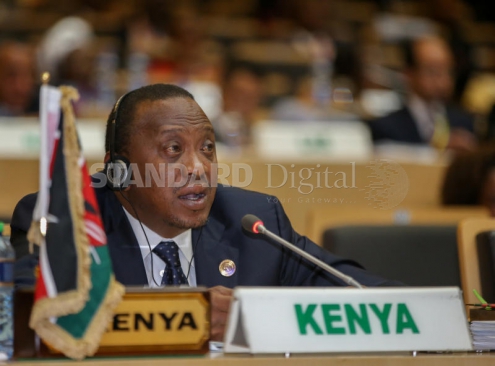×
The Standard e-Paper
Kenya’s Boldest Voice

Three months after President Uhuru Kenyatta unilaterally committed the country to donate a sum of $1 million (Sh93 million) to the African Union for the establishment of the African Court of Justice, mystery surrounds status of the pledge.
Answers on the matter from officials at the Ministry of Foreign Affairs and International Trade and African Union’s (AU) Nairobi offices did not come through, when contacted by The Standard On Sunday.